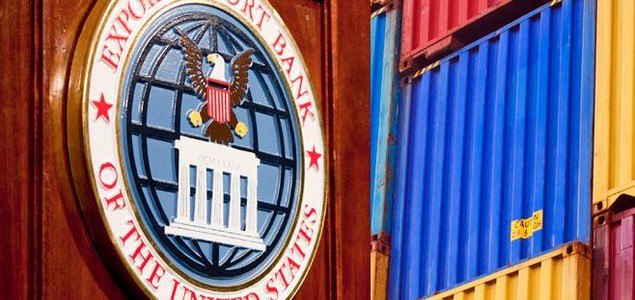
House Proposes Bipartisan Bill to Extend Ex-Im Bank
On Oct. 14, two senior House lawmakers unveiled a bipartisan bill to reauthorize the Export-Import Bank of the U.S. (Ex-Im Bank) and impose new requirements intended to protect taxpayers. The measure would provide for a long-term extension of the Bank’s charter along with a number of reforms in areas such as governance, anti-corruption safeguards, and ways to further facilitate small business exporting.
As the official export credit agency of the U.S., Ex-Im Bank helps finance American exports of manufactured goods and services, with the objective of contributing to the employment of the U.S. workforce, primarily in circumstances when alternative financing is not available.
The unveiling of this proposal, drafted by House Financial Services Committee Vice Chairman Gary Miller (R- Calif.), and Ranking Member Maxine Waters (D- Calif.), occurs in the midst of a deep political divide in Congress on whether the Bank should be reauthorized. In September, Congress extended the Bank’s charter for nine months, through June 30, 2015, when lawmakers also voted to keep the government running until Dec. 11.
The bill seeks to find a middle ground by combining a long-term reauthorization of Ex-Im Bank for five years through Sept. 30, 2019 with new requirements to safeguard taxpayers through reinforcing its risk and fraud protections. While the measure is not expected to get much traction in the current Congress, it could potentially serve as a foundation for a compromise in the coming year.
Among other things, the proposed bill includes the following:
- Enhanced Bank Loan-Loss Reserve: Requires the Bank to allocate 50 percent of its net earnings each year to a loan-loss reserve fund until the amount contained in the reserve fund equals 95 percent of the losses that could occur under a worst-case stress test scenario reported in the Bank’s quarterly default report, or 5 percent of the total outstanding exposure of the Bank at the end of each fiscal year.
- Reauthorization of Information Technology Updating: The bill reauthorizes the authority for the Bank to utilize administrative funds equal to 1.25 percent of the Bank surplus, but no more than $20 million consistent with current law, for updates to the Bank’s information technology systems infrastructure, through 2019.
- Financial Institution Risk Sharing Pilot Program: The bill includes, efforts to incentivize private banks to play a greater role in export assistance by establishing a financial institution risk-sharing pilot program. The pilot program would allow private banks to share risk in the Bank’s long-term guarantee program up to $1 billion annually in exchange for receiving fees received from the participants in that program, commensurate with the level of risk taken by any private participant in the pilot program.
- Reporting of Waste, Fraud, and Corruption: Requires the Bank to develop a policy and mechanism to inform Bank staff and recipients of Bank support of how to report suspected waste, fraud, and corruption, including by publicizing the contact information for the Inspector General or another similar hotline number in transaction documents and in a prominent location of the homepage of the Bank website.
- Increased Participation by Private Partners: The bill requires the advisory committee to make recommendations to the Bank on ways to encourage increased participation by private financial institutions in providing outreach about the Bank to small businesses.
- Technical Assistance for Small Businesses: The bill requires the Bank to provide technical assistance to small businesses on how to apply for financial assistance provided by the Bank—such as training classes and online
- Report on Indirect Bank Support for Small- and Medium-Sized Companies: Requires the Bank to include in its annual report to Congress an analysis of how, and the extent to which, the Bank provides indirect support to small and medium-sized companies through the supply chains of medium-sized and large companies that receive Ex-Im Bank assistance.
- Publish a Business Plan: The bill would not increase the Bank’s $140 billion credit-exposure limit, instead it would requires the Bank to publish a business plan within one year providing an estimate of the appropriate credit-exposure limits, and subsequent business plans every two years thereafter through 2019. The plan should include justification for the estimate, an estimate of any anticipated growth of the Bank over the next two years, an analysis of the potential for increased/decreased risk of loss to the Bank, and an analysis of the ability of the Bank to meet its mandates with respect to small business.
NSBA has been an outspoken proponent of reauthorizing the Bank, as it is often the only financing resource available to many small exporting firms. Additionally, it was recently announced that for fiscal year 2014, Ex-Im returned $675 million to the U.S. Treasury, money earned from interest and fees.
Please click here for the bill’s full text, and here for the summary.


COMMENTS